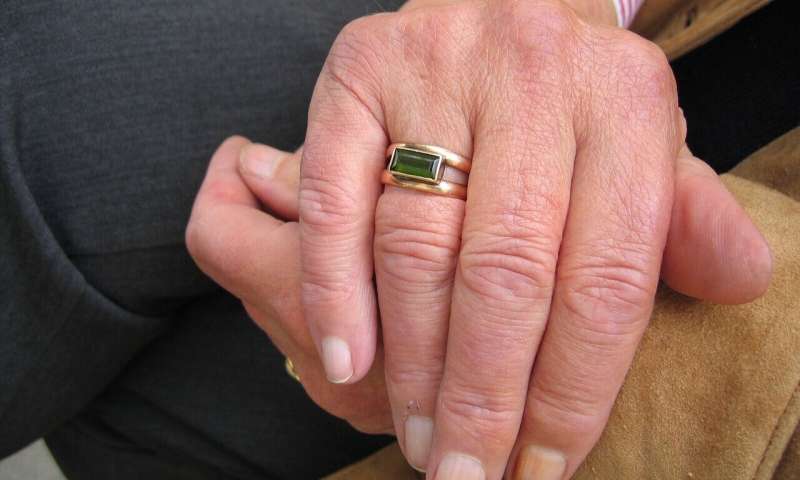Study illustrates that paid home care workers go well beyond standard duties

Paid home care workers are helping patients manage chronic conditions and promoting general and mental health—going well beyond the personal care contributions for which they have been historically associated, according to new Cornell research.
The study also revealed that expanded duties, particularly emotional care, resulted in a higher perceived value of the workers' contributions, which could help boost pay for home care workers, most of whom receive low wages; one in four lives in households below the poverty line.
The study, "Utilization, Contributions and Perceptions of Paid Home Care Workers among Households in New York State," published Jan. 6 in Innovation in Aging. Lead author is Dr. Madeline Sterling, assistant professor of medicine at Weill Cornell Medicine; Ariel Avgar, Ph.D., professor and associate dean for outreach and sponsored research at the ILR School, is a co-author.
The research is part of a growing body of work led by Sterling and Avgar that explores the working conditions and future of the rapidly growing home care workforce, expected to increase from 2.3 million statewide to nearly 4 million by 2030.
To conduct the study, the researchers surveyed 800 New York state residents by telephone through the Cornell Survey Research Institute's 2020 Empire State Poll. A third of respondents reported that they or an immediate family member received care from a paid home care worker, and of those 274 people, 74% said the workers provided more than personal care. The responses could help realign reimbursement for paid home care workers' wages and services, and improve standardized training—particularly for emotional and some medical care aspects, the researchers said.
"Home care workers make valuable contributions to care that go way beyond assisting their clients with activities of daily living," Sterling said. "Not only did we find that they assist with medical care and provide emotional support, but doing so was associated with higher levels of client satisfaction.
"We've seen home care workers provide essential frontline care during the pandemic, but the reality is, they have been providing this type of care all along, but [are] often not recognized for it," she said.
"Our findings provide support for efforts to promote public policies and organizational practices that elevate the role that home care workers play and improve their working conditions, including wages and benefits," Avgar said. "This research adds to the body of evidence on the critical contribution of workers who are, far too often, invisible to the health care system and to policymakers.
"Improving working conditions and expanding training for home care workers has the potential to address both long-standing quality of care issues in our health care system, especially for aging populations, while at the same time advancing economic opportunities for a workforce that is disproportionately comprised of women of color—a powerful win-win," he said.
Other co-authors on the study are: Data analyst Joanna Bryan Ringel, research assistant Jacklyn Cho, both of Weill Cornell Medicine's Division of General Internal Medicine and Catherine Riffin, assistant professor of psychology in medicine at Weill Cornell Medicine.
More information: Madeline R Sterling et al, Utilization, Contributions, and Perceptions of Paid Home Care Workers among Households in New York State, Innovation in Aging (2022). DOI: 10.1093/geroni/igac001




















